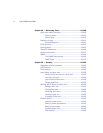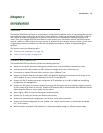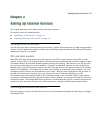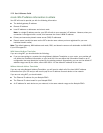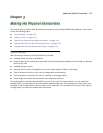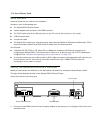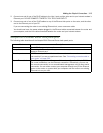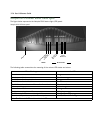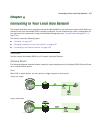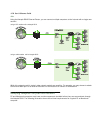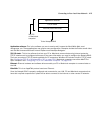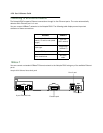
Making the Physical Connections 3-13
CC
CC
hh
hh
aa
aa
pp
pp
tt
tt
ee
ee
rr
rr
33
33
MM
MM
aa
aa
kk
kk
ii
ii
nn
nn
gg
gg
tt
tt
hh
hh
ee
ee
PP
PP
hh
hh
yy
yy
ss
ss
ii
ii
cc
cc
aa
aa
ll
ll
CC
CC
oo
oo
nn
nn
nn
nn
ee
ee
cc
cc
tt
tt
ii
ii
oo
oo
nn
nn
ss
ss
This section tells you how to make the physical connections to your Netopia R910 Ethernet Router. This section
covers the following topics:
■
“Find a location” on page 3-13
■
“What you need” on page 3-14
■
“Identify the connectors and attach the cables” on page 3-14
■
“Netopia R910 Ethernet Router back panel ports” on page 3-15
■
“Netopia R910 Ethernet Router status lights” on page 3-16
Find a location
When choosing a location for the Netopia Router, consider:
■
Available space and ease of installation
■
Physical layout of the building and how to best use the physical space available for connecting your Netopia
Router to the LAN
■
Available wiring and jacks
■
Distance from the point of installation to the next device (length of cable or wall wiring)
■
Ease of access to the front of the unit for configuration and monitoring
■
Ease of access to the back of the unit for checking and changing cables
■
Cable length and network size limitations when expanding networks
For small networks, install the Netopia R910 near one of the LANs. For large networks, you can install the
Netopia R910 in a wiring closet or a central network administration site. In most cases the router will be near
the cable or DSL modem which is near the cable or DSL wall outlet. You could pull a line from the wall outlet to
a wiring closet if you store the modem and router there.




